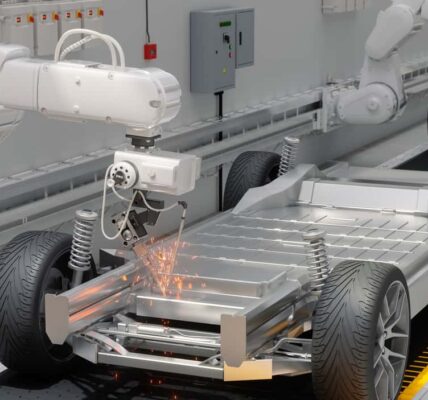Brussels is pushing for Washington to rethink “discriminatory” provisions in its new flagship green legislation, as alarm mounts among EU officials that the rules could prompt European companies to move production to the US.
Margrethe Vestager, Europe’s competition enforcer, said Brussels wants to use a meeting of the transatlantic Trade and Technology Council (TTC) in December as a vehicle to address a brewing dispute over America’s new rules contained in its Inflation Reduction Act, which became law in August. The hope, she told the Financial Times, was that this strategy would yield quicker results than legal action through the World Trade Organization.
“As a matter of principle, you should not put this up against friends,” Vestager said of provisions in America’s new Inflation Reduction Act that offer substantial incentives to bolster domestic production of electric cars and other green technologies. “You have what we see as an unbalanced subsidy.”
EU officials are concerned that the policies in the Inflation Reduction Act discriminate unfairly against electric vehicles produced outside of the US, amounting to a breach of WTO rules. The act includes tax credits for electric vehicles made in North America as well as provisions seeking to boost the US battery supply chain and its renewable power sector.
The tax credits have raised concerns in other jurisdictions, including South Korea. Seoul is furious that electric vehicles manufactured by Hyundai in South Korea will no longer be able to access the credits after a visit by US president Joe Biden earlier in the year led to expectations that they would be.
EU officials fear the tax breaks in the US will disadvantage the EU and prompt companies to shift production across the Atlantic, leading to job losses.
While the EU has been examining whether the US provisions violate WTO rules, Vestager suggested action via the Geneva-based organisation was not the preferred option. It can take up to a year for a dispute to reach arbitration, and a further year for a judgment. “A lot of good things can be said about the WTO process; fast is not one of them,” she said.
She suggested it was in both sides’ interests to avoid a subsidy race. “They could have a better deal if the subsidies would be done in a way that is not discriminatory towards the EU,” Vestager added.
Many details in the US legislation have yet to be hammered out, with officials in Washington likely to issue further clarifications early next year. US Treasury secretary Janet Yellen said that members of Congress were also discussing the matter when asked about European concerns in an interview.
“We are meeting with a lot of different parties because we need to draft the regulations — these are tax credits — that specify exactly what companies have to do to qualify for them,” she told the FT. “So we’re engaging in conversations.”
In remarks on Friday at the Roosevelt Institute, a left-leaning think-tank, Katherine Tai, the US trade representative, said that as both the US and the EU sought to reduce their carbon footprints, “we’re each going to do things that cause anxiety”. Tai’s remarks referred to both the Inflation Reduction Act and consternation in Washington over the EU’s carbon border adjustment mechanism, which would levy tariffs on imports from countries that do not yet tax carbon emissions. But Tai said there was scope for common ground. “This also creates an opportunity for us to work together, to tackle this existential crisis that threatens all of us,” she said.
EU trade chief Valdis Dombrovskis will be in Washington this week and will hold discussions with his US counterparts with the Inflation Reduction Act expected to feature on the agenda.
The EU’s hope in December’s meeting of the TTC is to achieve some “damage control”, rather than force fundamental change of the act, according to one person with direct knowledge of the talks.
“The WTO is the stick, but the TTC is the carrot,” the person said, adding that this would be the first time since the council was set up for it to prove its worth as a mechanism to solve disputes.
The person added that the commission was conducting an “exhaustive” survey of European companies to determine how many could move at least part of their supply chains to the US because of tax breaks.
“We want to sit down with the Americans to smooth the edges of the act and to get them to quickly and publicly send a message to companies to stay in the EU,” the person added.







